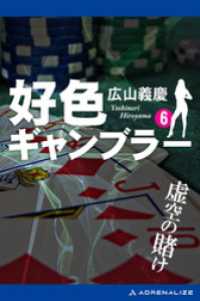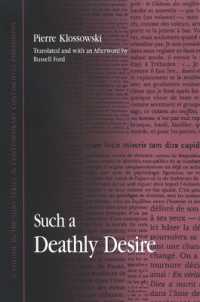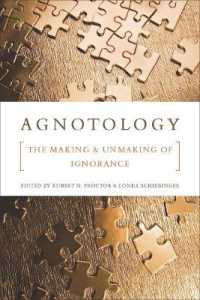- ホーム
- > 洋書
- > 英文書
- > Politics / International Relations
基本説明
Human Rights Education is understood to hold a key role in empowering individual to become free and equal members of their societies. This book explores how the ideals of emancipation and equality of the abstract discourse are realized in action.
Full Description
Since World War II, human rights have engaged people around the world like perhaps no other discourse. In Finland their embrace represents a shift from ideological homogeneity to pluralism and openness. Human rights education is understood to hold a key role in empowering individuals to become free and equal members of their societies. Yet little empirical scholarship exists evaluating how this goal is met in reality. By combining anthropological approaches with critical legal theory, this study explores the conceptions of knowledge, expertise and learning embedded in the educational activities of a particular network of Scandinavian and Nordic human rights experts. It explores how the ideals of emancipation and equality of the abstract discourse are realized in action.
Contents
Acknowledgements
Chapter one: Introduction
Chapter Two: Emergence of the Human Rights Phenomenon in Finland
Chapter Three: The Scandinavian Network of Human Rights Experts
Chapter Four: Training for Expertise
Chapter Five: From Translation to Advocation through Law
Chapter Six: Profile of Expertise
Conclusions, Bibliography, Index.
-

- 電子書籍
- 好色ギャンブラー(6) 虚空の賭け
-

- 電子書籍
- 女子高生 Girls-High 13巻






